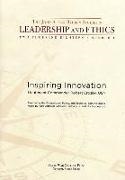Read more
History of African American admirals in the US Navy--Provided by publisher.
About the author
ABOUT THE AUTHOR
Lieutenant Commander Robert Crosby is a graduate of the U.S. Naval War College,
where he earned a Master of Arts degree in national security and strategic studies. He is
a nuclear submarine officer.
Lieutenant Commander Crosby was reared in Hot Coffee, Mississippi, in the
Mississippi Delta, the poorest region of the poorest state in America. As a youth, no one
in his inner circle possessed a high school diploma, and his greatest mentor during this
time possessed a fourth-grade education. Enlisting in the Navy as a cook afforded him
the opportunity to receive a college education, two master's degrees, and a Capitol Hill
assignment, while pursuing a career as a nuclear submarine officer. He completed sea
tours in USS Hampton (SSN 767) and USS Rhode Island (SSBN 740).
Lieutenant Commander Crosby's inspirational story has been shared across the
nation by the Navy, including in local newspapers and the Navy's All Hands magazine.
Crosby wrote My Journey from Hot Coffee to Scrambled Eggs to Nuclear Submarines, as
well as this paper, to inspire underserved youth. He is the founder of a nonprofit organization
called BOOST--Broadened Opportunity for Outstanding Student Selection and
Tracking. This program selects, tracks, and mentors high-performing students in underserved
communities and "boosts" them beyond their environments to achieve their
maximum potential. Crosby hopes to demonstrate that the Navy can not only fight and
win wars but also can change lives.
Crosby became interested in the stories of Vice Admiral Samuel L. Gravely Jr. and
his successors because of shared themes that revolve around beginning in meager
circumstances, overcoming obstacles, and advancing in the Navy with the assistance of
others. Crosby's story mimics the themes of the struggles of Gravely and his successors
to overcome racism and social, economic, and workplace exclusion to make positive
contributions to national defense. The author's message of using "A&W"--attitude and
work ethic--to advance in careers that require specialized training and credentialing
is enduring and is relevant now and will continue its relevance into the twenty-first
century and beyond.

